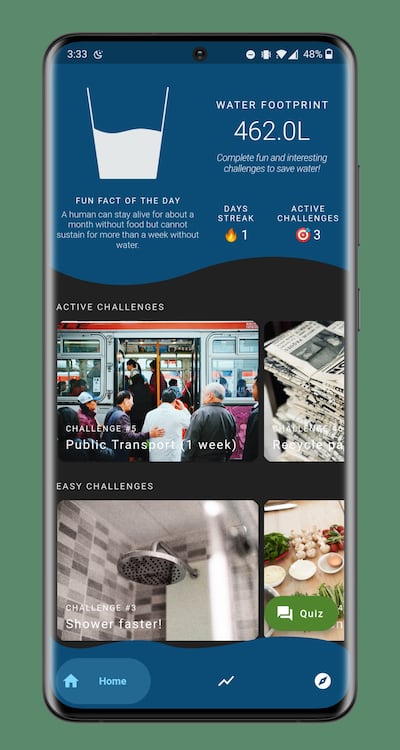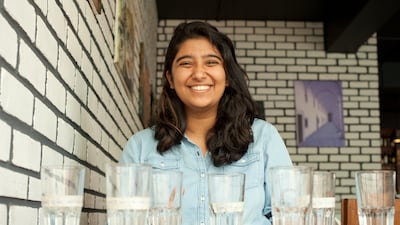Based on my answers to a short quiz, the Why Waste water conservation app on my mobile phone tells me that my water consumption is “above average”. The app next offers suggestions to help me save water: going vegetarian for a week can help save 1,000 litres per day, it says, while recycling plastic and paper can save about 15 litres per day. It also informs me that bottled water consumes three times as much water as it holds, and that eliminating food wastage can help reduce an individual’s water footprint.
Water is an invisible component in all facets of life — from food and clothes to the products and services we use, everything requires water at some point in its life cycle. Misusing any of these items means contributing to the misuse of water. According to the United Nations World Water Development Report 2021, published by Unesco on behalf of UN-Water, failure to recognise the value of water is the leading cause of its waste and misuse.
conservationist
“Most people are not aware of how much water they are consuming,” Garvita Gulhati, founder of Why Waste? non-profit, tells The National ahead of World Water Day 2022. "They may also not know that they are a part of the problem even when they are keen to contribute to the solution."
All of 21, the engineering graduate has been recognised as a Global Changemaker and an Ashoka Youth Changemaker, is also on the Forbes' 30 Under 30 Asia list and is one of the 17 Youth Climate Leaders from India as part of the UN's #WeTheChangeNow campaign.
“The app was created with the perspective that each one of us can take action and make a difference in conserving water,” she says. The inspiration for the app, meanwhile, came from the Cape Town water crisis of 2018, and the way in which the city averted day zero through collective action by citizens and authorities. “They found a solution by calculating the amount of water consumed on a daily basis and rationing it,” says Gulhati.

At the time of the Cape Town crisis, Gulhati was a student in Bengaluru and well aware that her city was also projected to run out of drinking water in the near future. A water conservationist since her teenage years, she began thinking more seriously about how she could raise awareness about the judicious use of water. The Covid-19 lockdown freed up her time to explore options, leading to the development of the app.
Gulhati first started thinking about it seriously when she was 15, and learnt in her environmental science studies class that water left behind in glasses in restaurants across India resulted in the wastage of about 14 million litres every year.
This statistic troubled the young Gulhati, and she started visiting restaurants to understand the problem better as well as starting a non-profit organisation called Why Waste?, which attracted like-minded youngsters.
The team came up the #GlassHalfFull initiative, which required restaurants to only fill half a glass with water unless the customer asked for more. However, it took two years to get a mere handful of restaurants to implement the idea, so Gulhati approached the National Restaurant Association of India, an umbrella entity for more than 500,000 restaurants across India.
“By partnering with NRAI on the Glass Half Full concept, we have helped save 10 million litres of water, impacting more than six million people,” says Gulhati, who has been dubbed “the water girl of India” and is the only Indian recipient of Shawn Mendes Foundation's first Wonder Grant, which was given to young changemakers who are using their voice, vision and abilities to transform the world for the better.
The idea has also taken wings and is creating its own trajectory. “We’ve had volunteers from the US, parts of Africa, Europe, Dubai, Nepal, Mexico, the UK and Canada who have gone on to adopt the concept in their own ways,” she says. “An unforeseen feedback we received was that customers are taking the idea back to their homes.”
It’s this impact that has catapulted the youngster to global acclaim.
As Yashveer Singh, co-founder and global executive director of Ashoka Young Changemakers, puts it: “The power of an idea is the idea itself. Garvita’s Glass Half Full is so easy to implement; all it involves is educating.”

